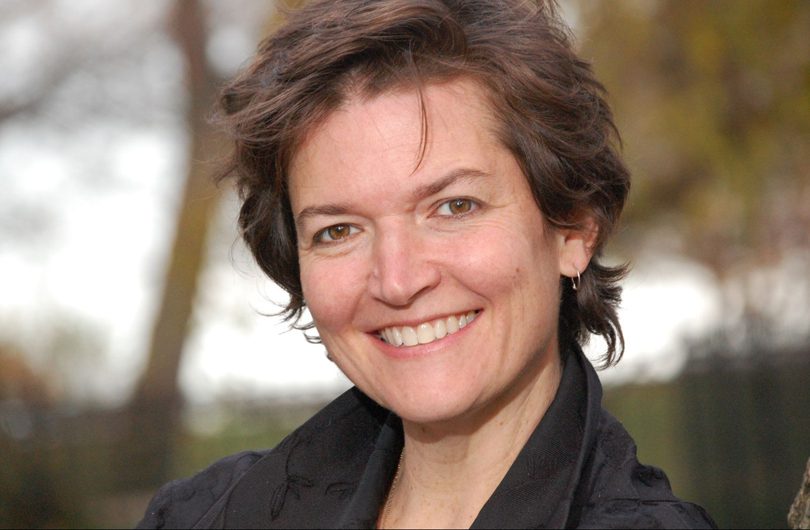Jessica Thebus
Director, Miss Bennet: Christmas at Pemberley
Yes, Miss Bennet is a kind of sequel to Pride and Prejudice, and in terms of plot it’s very direct: at Christmas, what happened? What does everybody do next? But there’s something about it that makes it like that is not the point of it. Because Pride and Prejudice needs no sequel. It would be impossible to do that, and a bad idea, not even conceivable.
But what it is, is this great homage to Pride and Prejudice, and to all the experience we have as readers encountering that fantastic work, and what it makes us think about today about ourselves. And so it’s kind of this beautiful gift to the Austen lovers. Because we all have our questions of “Then what did they say to each other?” So much of Pride and Prejudice the novel, and subsequent theatrical adaptations of it, is veiled. You don’t get to hear that conversation or see that thing. Austen is very circumspect, and the wit keeps you at a certain distance, so you’re left with a lot of fantasies about it. This play feels like there’s such a wink in the text, like “This is one possible fantasy that we had, that we’ll tell you about” and it’s so fun to listen! So it frees you from any thoughts of “Well, I don’t think that’s what happened,” because it’s so self-aware, in a great way.
It’s a feminist play, and it’s very unapologetic about being a feminist play, in a way that you should be. It asks “What are the possibilities for the women in the story that don’t get a magical fairy tale ending?” Who hasn’t experienced Pride and Prejudice deeply and been like “Will Mary end up in an attic? A convent? Why didn’t Mr. Collins marry her, then Charlotte could have been with someone more interesting?! This is a disaster!” Give Mary Bennet freedom from the attic, please!
So it starts with her, but then also brings in Anne de Bourgh, who I don’t think we ask the same questions about because she’s sort of folded into the joke of her mother, Lady Catherine. But really, if you’re looking at them as real people, she’s in a different kind of prison. She’s in a prison because she has money, and Pride and Prejudice tells us that she even has the estate, it’s not entailed away from the female line (which is a problem the writers are having to deal with in the plot of this play). But money’s not enough. She doesn’t have love, or independence or self-determination, because of the money. And then Mary, of course, doesn’t have money, so that’s her problem. So you see these two characters, and then Lydia is the third one: she made this mistake, as this rebellious young woman, and is now kind of stuck with it, and what’s going to happen to her? Austen made it ok by marrying them and getting Wickham a position, but what’s her story? And so the three of them are left by Austen in the cages of the time, whereas Lizzie and Jane – because of their true love and their luck and these men that have money and power who adore them – are going to be ok. And the parents, as a result, are going to be ok.
So, we revisit these three women and ask, “If we were to be able to go into literature and back in time, what could we give them?” It’s clear from the playwrights that this play is one answer, there could be many answers in our other fantasies about it. One of the fundamental things about it is that people change. Mary is a teenager. Mary will change, and the world may offer interesting circumstances to her. Is it impossible for Mary, who’s kind of the plain, scolding, prissy one to change and write her own future? Well today that’s much more possible. So let’s go back and give that to her, and maybe it’ll remind us that we can. And Anne – is it possible for her to decide she doesn’t want what is expected? That she doesn’t have to be the next Lady Catherine? And Lydia, what is her future for a relationship, or some self-knowledge and revelation?
Especially as a Christmas play, it feels so holiday-like, and so lovely, to give these gifts to these characters we love, and to ourselves in dialogue with them, and to really wonder about possibility. It’s not meant to read like Austen, or to be the same. It’s its own play, that says “Let’s imagine.” It engages the imagination and human feeling, but lets us spend a little more time with these people we love, who have been in our heads for a very long time.

